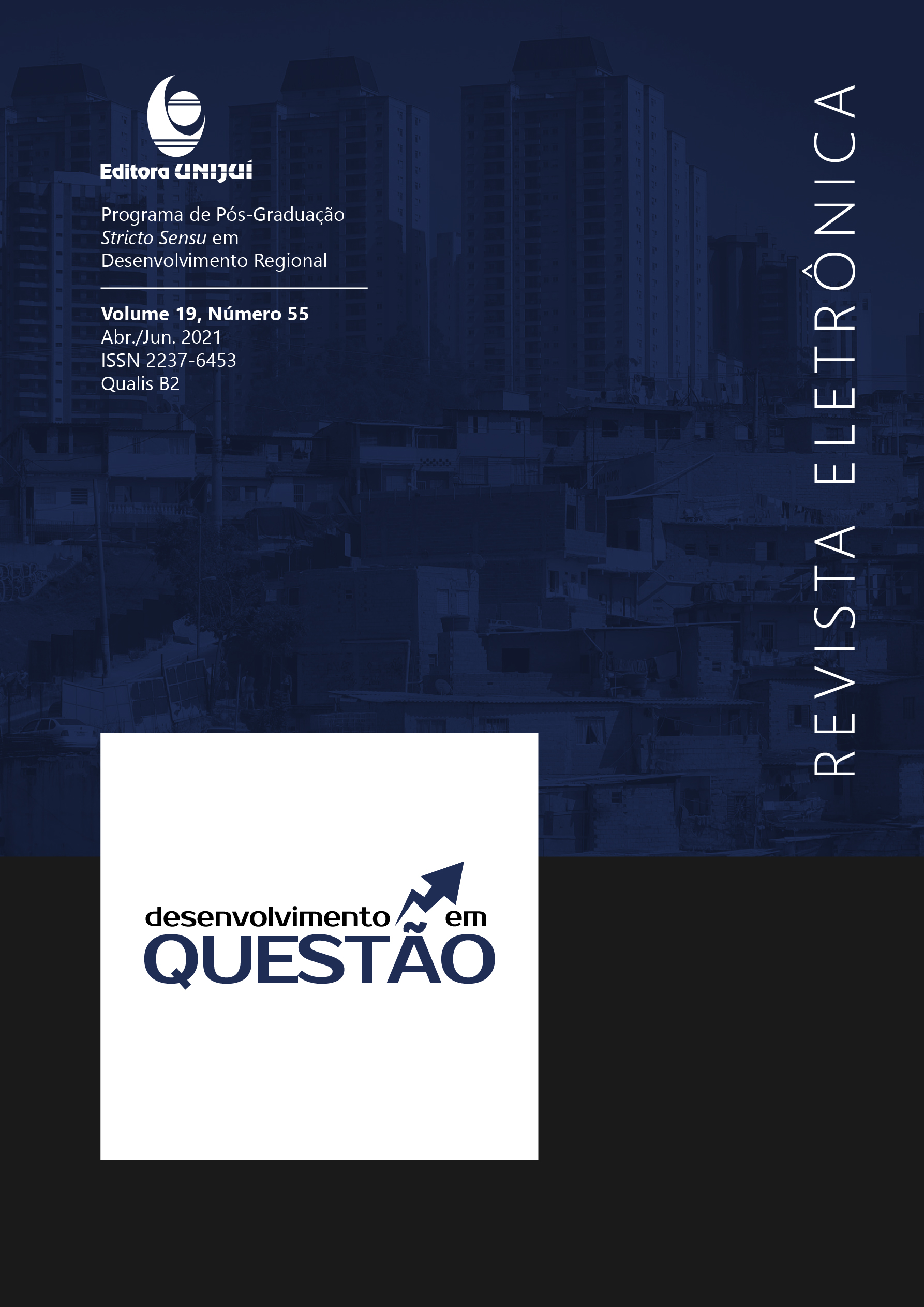Emissões de Gases de Efeito Estufa Associadas às Dietas Alimentares no Brasil
GREENHOUSE GAS EMISSIONS ASSOCIATED WITH FOOD DIETS IN BRAZIL
DOI:
https://doi.org/10.21527/2237-6453.2021.55.10660Palavras-chave:
Mudança climática, Consumo alimentar, BrasilResumo
O Sistema alimentar é uma das principais fontes de emissão de gases de efeito estufa (GEE). Como estas emissões variam de produto a produto, alguns autores afirmam que as dietas alimentares precisam mudar para que a produção de alimentos possa crescer com mínimo impacto ambiental. Suprindo a carência de estudos sobre as emissões de GEE associadas às dietas no Brasil, este trabalho visa examinar o impacto das dietas alimentares consumidas nas 26 capitais estaduais do país e no Distrito Federal nas emissões de GEE por parte de indivíduos de diferentes estratos de renda. Os resultados mostram que carne bovina e produtos lácteos são as principais fontes de emissões de GEE no Brasil e que as dietas dos nortistas e dos indivíduos de maior renda emitem muito mais. Como as dietas alimentares consumidas no país variam muito em termos de emissão de GEE e de valor nutricional, há viabilidade de se adotarem a dietas que tanto atendam às necessidades nutricionais dos indivíduos quanto reduzam as emissões de GEE.
Downloads
Publicado
Como Citar
Edição
Seção
Licença
Ao publicar na Revista Desenvolvimento em Questão, os autores concordam com os seguintes termos:
Os trabalhos seguem a licença Creative Commons Atribuição 4.0 Internacional (CC BY 4.0), que permite:
Compartilhar — copiar e redistribuir o material em qualquer meio ou formato;
Adaptar — remixar, transformar e criar a partir do material para qualquer fim, inclusive comercial.
Essas permissões são irrevogáveis, desde que respeitados os seguintes termos:
Atribuição — Atribuição — os autores devem ser devidamente creditados, com link para a licença e indicação de eventuais alterações realizadas.
Sem restrições adicionais — não podem ser aplicadas condições legais ou tecnológicas que restrinjam o uso permitido pela licença.
Avisos:
A licença não se aplica a elementos em domínio público ou cobertos por exceções legais.
A licença não garante todos os direitos necessários para usos específicos (ex.: direitos de imagem, privacidade ou morais).
A revista não se responsabiliza pelas opiniões expressas nos artigos, que são de exclusiva responsabilidade dos autores. O Editor, com o apoio do Comitê Editorial, reserva-se o direito de sugerir ou solicitar modificações quando necessário.
Somente serão aceitos artigos científicos originais, com resultados de pesquisas de interesse que não tenham sido publicados nem submetidos simultaneamente a outro periódico com o mesmo objetivo.
A menção a marcas comerciais ou produtos específicos destina-se apenas à identificação, sem qualquer vínculo promocional por parte dos autores ou da revista.
Contrato de Licença (para artigos publicados a partir de 2025): Os autores mantêm os direitos autorais sobre seu artigo, e concedem a Revista Desenvolvimento em Questão o direito de primeira publicação.











